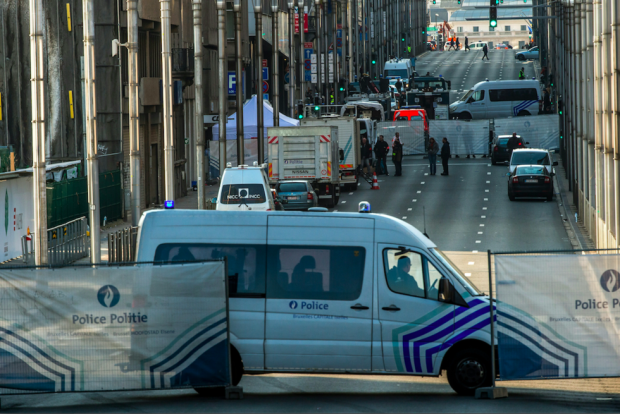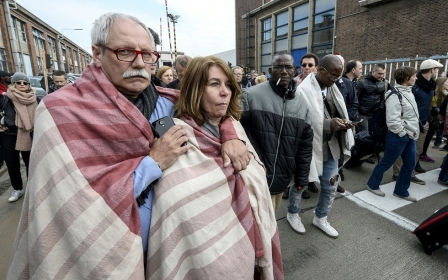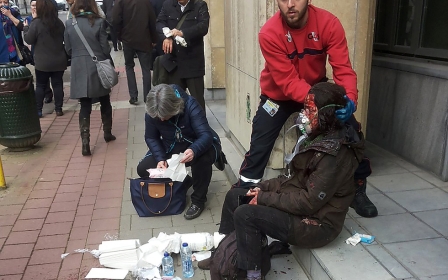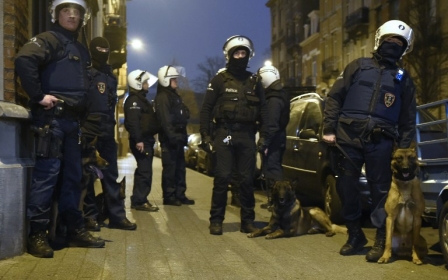Eerie silence descends across Brussels after deadly IS attacks
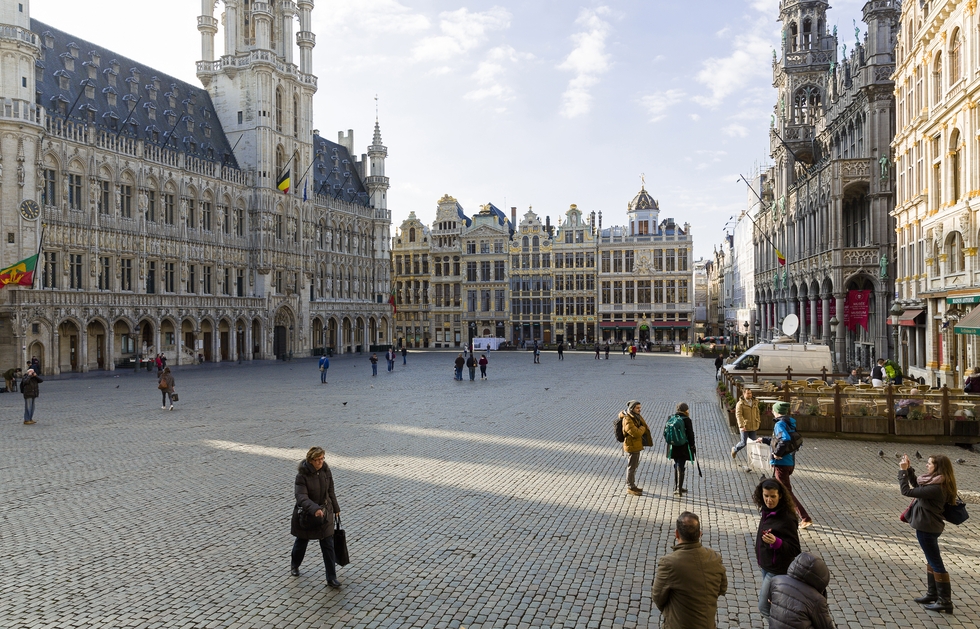
BRUSSELS - An eerie silence descended across Brussels on Tuesday following the worst terrorist attacks in the city’s recent history as police launched raids across the country.
Concrete-and-glass buildings linked to the European Union, which is headquartered here, were all on lockdown, along with decaying blocks of flats in working-class immigrant districts where IS has been trying to build support.
Military personnel meanwhile lined streets and squares, with officials issuing warnings to “stay inside, and don’t go anywhere unless absolutely necessary”.
The transport system was almost shut down completely, with Metro stations closed following the bomb blast in Maalbeek metro station in which 20 people were killed and many others maimed. The blast came some 70 minutes after apparent gunfire and two bombs rocked the city’s Zaventem airport, killing 14 people.
Follow our live blog for the latest news
Rolf Krieger, who runs a market stall in the city centre, said: “I’ve never known the city to be so quiet. Everywhere is empty. People are clearly very scared, and are staying in.”
“We were all told that something like this was going to happen, but that doesn’t make it any easier to cope with,” he added.
While some transport was re-opened after 4pm local time (1500GMT) many have continued to stay indoors.
Lise Roy, 19, who commutes across Brussels every day, told Middle East Eye: “You don’t get any more cowardly than murdering innocent people going to work.”
“These murderers don’t know what they want, they just want to destroy everything and spread fear.”
The Islamic State (IS) group has since claimed the bombing, with some of its supporters warning of further attacks ahead.
In the wake of the attacks, Belgian police raided properties across the country.
In one Brussels apartment they found a nail bomb, chemicals and an IS flag.
There has been some speculation that Tuesday's bombings were carried out in “revenge” for the Friday arrest of Salah Abdeslam, a suspected IS member who took part in the Paris attacks last November in which 130 people were killed and almost 370 others injured.
Abdeslam, a Belgian-born French national of Moroccan descent, was shot and wounded in Molenbeek, an impoverished Brussels neighbourhood that is only separated from the city centre by a canal.
It is home to a mostly immigrant population of some 100,000 people, many of them from a Moroccan background, and is seen as a hotbed of crime and criminal activity.
Investigators also believe that the area was used as the operational base for the Paris attacks, with some residents reportedly travelling to Syria and Iraq to join militant groups.
Yet the mood in the westerly neighbourhood was one of rejection, not adulation for Abdeslam and Tuesday’s attackers.
“Salah Abdeslam is somebody whom we disown,” said Rav Sulliman, a 22-year-old student. “He is nothing to do with ordinary Muslims, and shames us all.”
“We are disgusted by his crimes, and hope he goes to prison for a long time, along with anybody who is connected to today’s attacks,” he said.
Yet despite evidence that Abdeslam was behind many of the logistics for the attacks in France, he was apparently able to escape to Brussels, and remain on the run for four months.
A police source admitted it was often difficult for them to catch anyone in Molenbeek because local gangs employed teams of “spotters”.
“They look out for any enemy forces, which means police, and warn the criminals accordingly,” the source told MEE.
The Paris attacks are not the first time the neighbourhood has been linked to militant behaviour.
Mehdi Nemmouch, who allegedly opened fire with a Kalashnikov rifle at the Jewish Museum in Brussels, killing four in May 2014, also lived in Molenbeek.
Following the Paris attacks, Francoise Schepmans, the mayor of Molenbeek, admitted receiving a list with the names and addresses of more than 80 locals suspected of having links to hardline Muslim armed groups.
These included Abdelhamid Abaaoud, the ringleader of the Paris attacks, who was killed in a police raid in the suburb of St-Denis four days later, on 19 November.
Belgium’s Interior Minister, Jan Jambon, meanwhile admitted that “we don’t have control of the situation in Molenbeek at present” and need to “clean up the area”.
New MEE newsletter: Jerusalem Dispatch
Sign up to get the latest insights and analysis on Israel-Palestine, alongside Turkey Unpacked and other MEE newsletters
Middle East Eye delivers independent and unrivalled coverage and analysis of the Middle East, North Africa and beyond. To learn more about republishing this content and the associated fees, please fill out this form. More about MEE can be found here.


